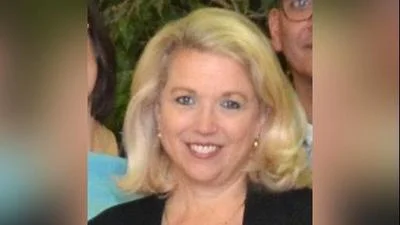Rep. Deanne Mazzochi | Facebook / Deanne Mazzochi
Rep. Deanne Mazzochi | Facebook / Deanne Mazzochi
State Rep. Deanne Mazzochi (R-Elmhurst) called for more tools to enable prosecutors to tackle the fentanyl crisis. In suburban Cook County, 487 people died from opioid overdoses in 2020, and fentanyl was involved in the majority of those deaths, according to a release.
Mazzochi and some of her House Republican colleagues have proposed HB 5808, a bill intending to address the fentanyl crisis in Illinois, according to the General Assembly website. The bill would change the Illinois Controlled Substances Act to increase the penalties associated with manufacturing, possessing, and intending to distribute fentanyl; add the new offense of "fentanyl trafficking" into the criminal code; and establish sentencing minimums.
"This shows how fentanyl is destroying communities across the country" Mazzochi said. "One pill can kill and we need to give prosecutors stronger tools to combat fentanyl and prosecute dealers. Our kids are dying from fentanyl overdoses because of deceptive tactics by distributors, like "rainbow fentanyl," and making it look like different prescription medications."
Federal officials commented on the issue as well.
"Of this year, DEA agents conducted 389 investigations, including 35 cartel linked investigations in 201 cities," Attorney General Merrick Garland told reporters last week. "Over the course of these investigations, we seized over 10 million fake pills and 82 pounds of fentanyl powder motor crews across all 50 states. That is enough to kill 36 million Americans. In addition, agencies 338 weapons during this operation, including shotguns pistols, and hand grenades."
Depending on a person's body size and drug tolerance, as little as two milligrams of fentanyl can be a lethal dose, according to the DEA. In April 2021, the Illinois House narrowly supported a plan that would decrease the criminal penalty for possession of drugs including fentanyl, the Center Square reported. Sponsors of the bill, including Rep. Anna Stava-Murray (D-Downers Grove), said the measure was intended to route offenders to drug addiction treatment, rather than jail. The bill has not progressed in the Senate.






 Alerts Sign-up
Alerts Sign-up